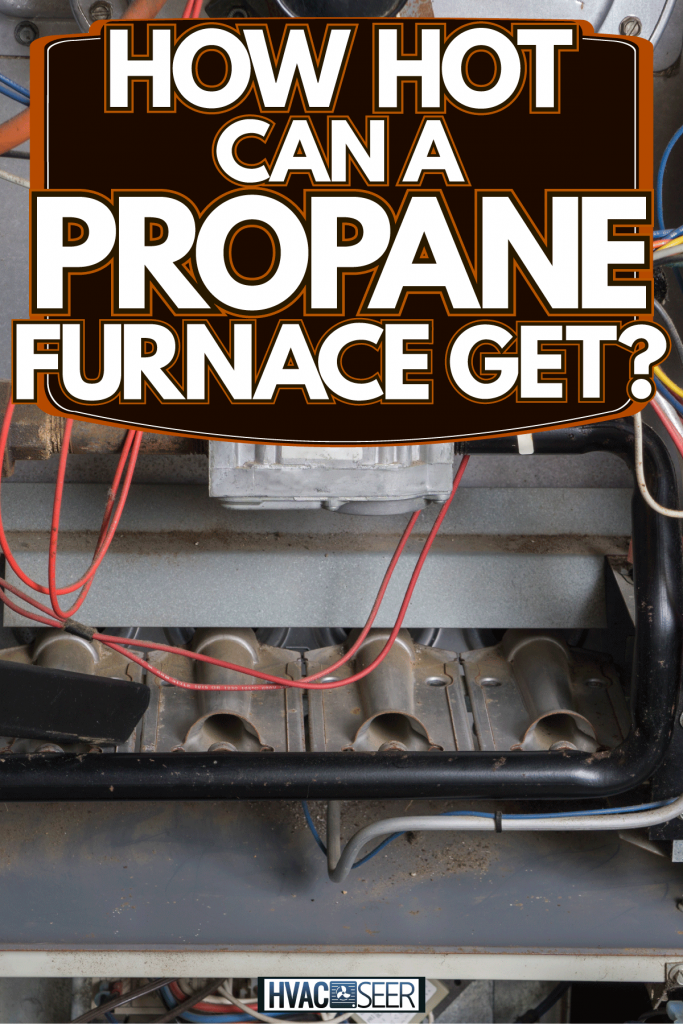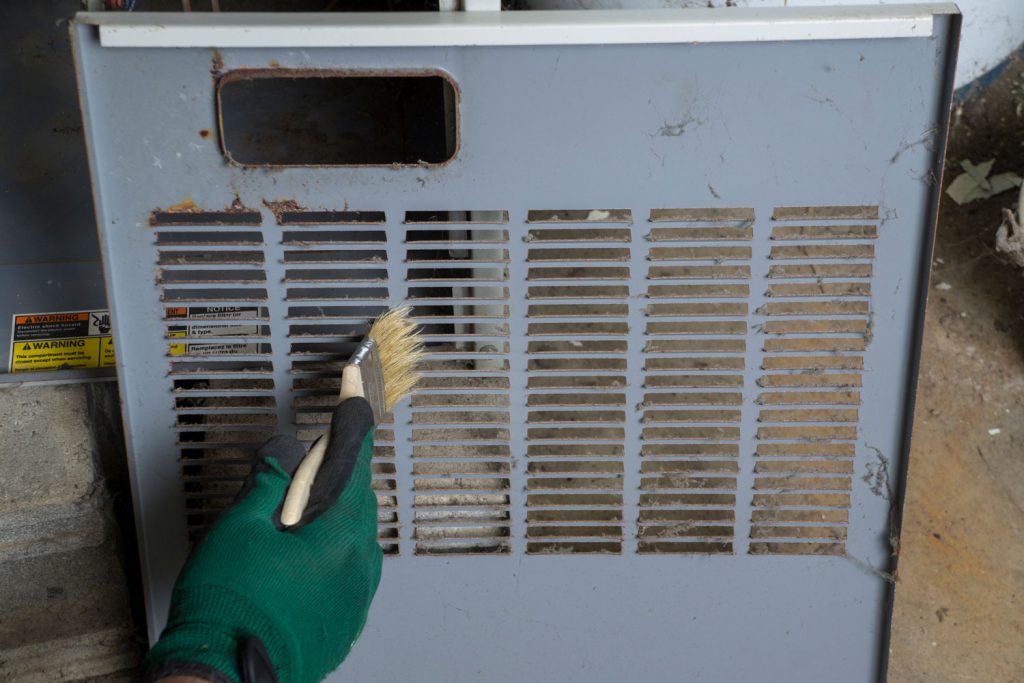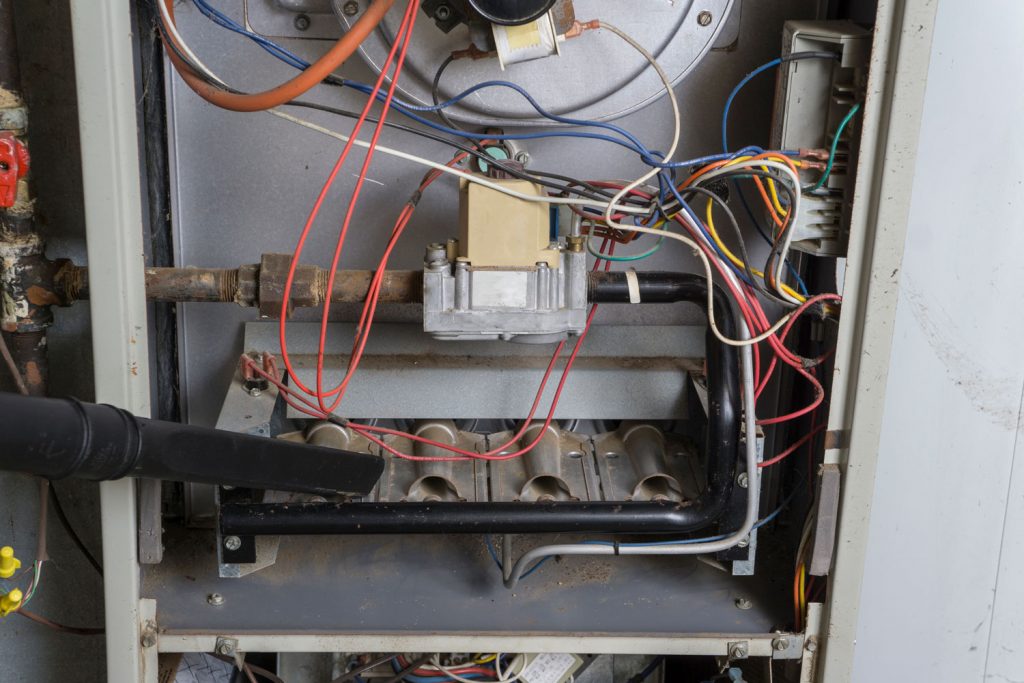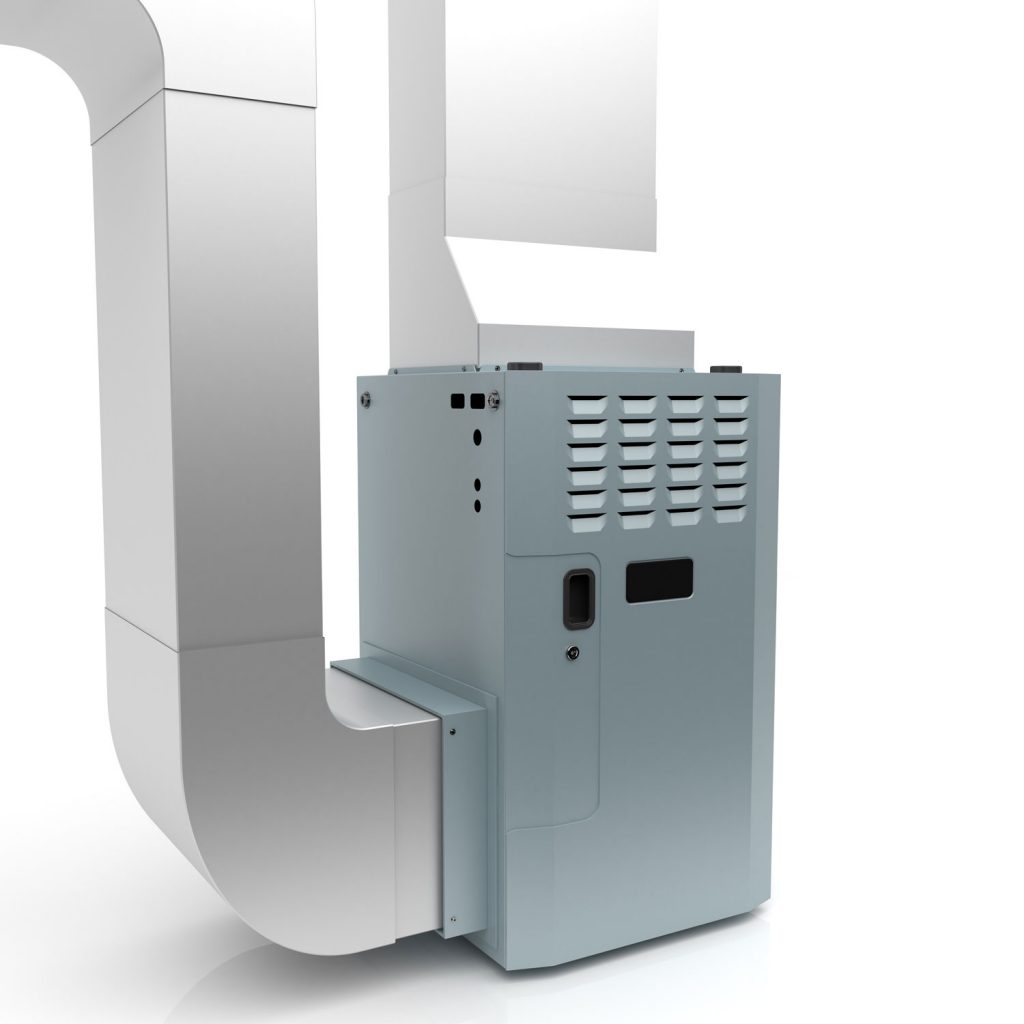A good residential heating system is essential, especially during winter. Among these systems, propane furnaces are widely used not only because of their efficiency but also because of the level of comfort they can give you. We researched how hot a propane furnace can get, and here’s what we found.
A propane furnace provides a warm heating temperature ranging from 115 to 125 degrees Fahrenheit by heating the indoor air through propane combustion. Propane furnaces work independently from outside conditions making them an effective heating system to use.
Keep on reading this article to get to know more about propane furnaces. We’ll also guide you on what to do if problems such as overheating and consumption of too much propane arise.

Should A Furnace Be Hot to the Touch?
Propane furnaces can provide heating at any floor size with their combustion air intake and exhaust piping designed to be installed almost anywhere in the house. With its efficiency rating between 90% and 98%, it delivers warmer heat compared to other heating systems.

It is normal for a furnace to be hot to the touch since its main function is to provide heat to your home. While most single-stage furnaces are uncomfortable to touch, most furnaces have limit sensors to keep them from overheating.
What would cause a furnace to run hot?
As we have mentioned above, your furnace has limit sensors that keep it from overheating. However, this does not immune your heating system from overheating.
If you notice that your furnace is turning on and off abnormally, or if you hear a strange humming sound and have a constant burning aroma, then there is a big possibility that your furnace is overheating.
Now you’re wondering, what would cause my furnace to run hot? Here are a few common causes your furnace may be overheating.
Restricted Airflow
Poor air circulation is one of the most common reasons why a furnace overheats. When there is no good airflow in your furnace, its internal components can get too hot. This typically happens when your air filter isn’t changed regularly.
Dirty Internal Components
Having a clogged air filter allows dust and contaminants to accumulate in the internal components of your furnace. These particles cover the coil of your furnace and prevent the heat exchanger from moving heat to your system.
The blower motor is mainly sensitive to dust and dirt. So when it gets too dirty or covered in dust, it can’t properly ventilate itself and may overheat.
Mechanical Failure
Another common reason for a furnace to overheat is due to the failure of mechanical components in your system. A short circuit in the electrical wiring or inadequate circulation in the fan blower can cause the furnace to overheat.
Service life is already approaching
On average, a furnace lasts about 15 to 20 years. As your furnace approaches its service life, some parts start to wear out and stop functioning the way they’re designed to. If these parts do not work the way they’re supposed to, then it can damage your furnace and subject it to overheating.
How do you fix a furnace that overheats?

You already have an idea of why your furnace overheats. Now you’re looking for ways to fix a furnace that overheats. Don’t worry! We got you! These are what we researched on how to fix a furnace that overheats:
Regularly clean your furnace and replace air filters
Regularly schedule the cleaning of your furnace. A dirty filter will restrict the amount of air entering your heating system, making your furnace work harder and hotter. To prevent your air filter from being clogged, here’s how often you should change your air filter:
- For furnaces with 1”-2” filters, replace every 3 months.
- For furnaces with 4” filters, replace every 6 months.
- For furnaces with 5” filters, change every 12 months.
Schedule regular tune-ups for your furnace
Just like any other mechanical system, regular tune-ups are essential in maintaining your furnace. Not only does it ensure that the moving parts are in good working order, but it also enables technicians to spot signs of strain and premature wear in your furnace.
Remember, it is more cost-effective to identify the problem in your mechanical components before they fail completely or cause some serious damage to your furnace.
Replace your furnace to a new unit
When do you know the right time to completely replace your furnace to a new unit? When deciding, you can make use of the 50% rule of thumb, which states that if the repair will cost more than 50% of the cost of replacement, it is more economical to buy a new one. By choosing to buy a new unit, you can save more money on repair costs.
Why is my furnace using so much propane?
Another problem that you will most likely experience with your propane furnace is its excessive consumption of propane. One may think that the system is leaking however it is not always the case.
Other factors such as poor insulation and draft sources, malfunctioning thermostat, blocked vents, and construction issues can increase your furnace’s fuel consumption.
When this problem arises, it is best to immediately contact a licensed contractor for troubleshooting.
Is a propane furnace better than standard heat pumps?

In choosing between a propane furnace and heat pump, it is important to look at the efficiency, energy savings, heating capacity, equipment cost, and environmental impacts. While it is true that the mandated minimum efficiency levels for heat pumps have increased recently, energy savings from high-efficiency propane furnaces are still higher.
Moreover, the cost of a new heat pump system is about 20% higher than a propane furnace. Heat pumps also produce less heat (around 95 degrees Fahrenheit) compared to propane furnaces (about 115 to 125 degrees Fahrenheit). And heat pumps emit more CO2 than propane furnaces.
Want to learn more, check out: "Can A Heat Pump Replace A Furnace? [And How To]."
To sum it up
Propane furnaces provide a high heating temperature to keep you comfortable enough when the climate is cold. And with regular check-ups and proper maintenance, it can surely last longer to provide that warm, fuzzy heat into your home.
